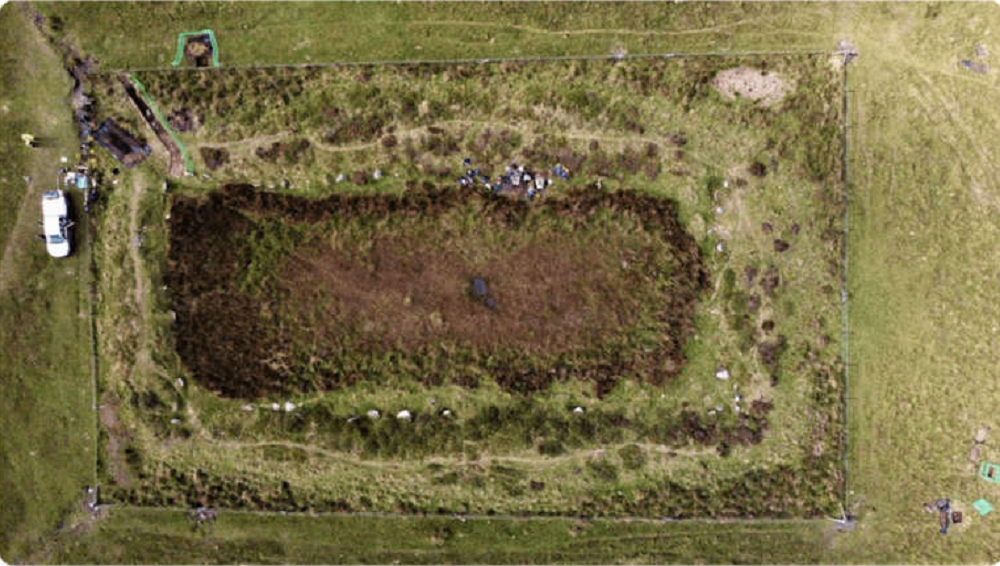Time travel: a concept that tantalizes the imagination and fuels countless debates, stories, and scientific inquiries. Are we forever bound to the present, inching forward second by second, or is there a way to break free from the constraints of linear time? Let's embark on a journey through the realms of possibility and science fiction to explore the tantalizing question: Can we truly leap through time?
The Fascination with Fictional Time Travel

Image created with AI
At this very moment, you're engaged in the most basic form of time travel, propelling into the future at a steady pace of one second per second. Life, with its routine and surprises, unfolds in a continuous march forward, leaving the past as a memory and the future as a mystery yet to unfold. But this isn't the time travel that ignites our collective imagination and spurs endless tales of adventure and caution.
The allure of hopping into a fantastical machine and emerging in a bygone era or a distant future has been a cornerstone of science fiction, from "Doctor Who" to "Back to the Future." These stories often delve into the profound consequences of meddling with time, exploring themes of fate, free will, and the intricate web of cause and effect. Yet, the exhilarating notion of traveling backward or forward through significant stretches of time remains, for now, a captivating figment of our creative imagination.
Understanding Einstein's Theory of Relativity

Image via UCLA Newsroom
Einstein's theory of relativity might sound complex, but it offers a fascinating insight into how time works. Imagine you're on a spaceship traveling incredibly fast, close to the speed of light.
According to Einstein, if you were to look at a clock on your ship, it would appear to tick at its normal pace. However, if you could somehow observe a clock back on Earth, it would seem to tick faster. This is because time itself slows down for you, the traveler moving at high speeds, compared to someone who is stationary.
It's a bit like watching a movie in slow motion while the rest of the world continues at regular speed. This phenomenon was observed in real life when astronaut Scott Kelly spent a year in space. Because he was moving so quickly orbiting the Earth, he aged a tiny bit less than he would have if he had spent that year on the ground. This shows us that, in a way, moving fast through space can slightly alter how we move through time.
Stephen Hawking's Perspective on Time Travel
Stephen Hawking, a renowned physicist, had a humorous yet insightful take on time travel. He pointed out that if time travel to the past were possible, we'd likely have met people from the future by now.
The fact that we haven't seen any "tourists from the future" suggests that traveling back in time might not be something we can achieve.
Hawking's observation doesn't disprove the concept of time travel entirely but highlights that, as far as we know, it hasn't happened yet. This doesn't necessarily mean time travel is impossible, but it does suggest that if it is, it comes with limitations we're not currently aware of or capable of overcoming.
So, while the idea of visiting the past or the future is exciting and often explored in science fiction, the evidence we have right now suggests it remains firmly in the realm of imagination.
Exploring Theoretical Possibilities
When we venture beyond the everyday understanding of time and space, theoretical physics offers some mind-bending possibilities that could, in theory, allow for time travel. These aren't just wild guesses but are based on complex mathematical models and our current understanding of the universe.
One such idea involves wormholes, which you can think of as shortcuts through the fabric of space and time. Imagine folding a piece of paper in half and poking a pencil through it to connect two points directly. Wormholes could potentially do the same, connecting distant points in spacetime and possibly allowing for instantaneous travel between them, including to different times.
Then, there are black holes, which are regions in space where gravity is so strong that not even light can escape. The physics around black holes are extreme and not fully understood, but some theories suggest that the intense gravitational pull could affect time itself, slowing it down relative to the rest of the universe. This concept is closely related to Einstein's theory of relativity, which also describes how gravity can bend time.

Image depicting String Theory (Courtesy of New Scientist)
Lastly, string theory, a frontier in theoretical physics, proposes that the fundamental particles we consider point-like might actually be tiny, vibrating "strings". String theory is a way to describe all forces and particles in a unified framework, and some versions of the theory include the possibility of multiple dimensions beyond the three of space and one of time we experience. These extra dimensions might offer pathways for moving through time in ways we can't currently comprehend.
While these ideas are thrilling and expand our imagination about what might be possible, they remain speculative without experimental evidence to support them. For now, they push the boundaries of our understanding and challenge us to think about the universe in new and complex ways.
So, What's the Verdict on Time Travel?
According to Einstein's theory of relativity, time dilation—a form of time travel to the future—is possible and has been proven on small scales, like with astronauts in space experiencing time slightly slower than those on Earth. This means that, in a sense, traveling forward in time, at least from the perspective of the traveler moving at high velocities compared to someone stationary, is scientifically supported.
However, the type of time travel that captures the imagination—jumping years, decades, or even centuries into the past or future at will, remains firmly in the realm of science fiction. The universe's timekeeping seems, for now, to be a one-way street, with small allowances for speed-related adjustments but firm barriers to the kind of temporal adventures that science fiction has long promised.





